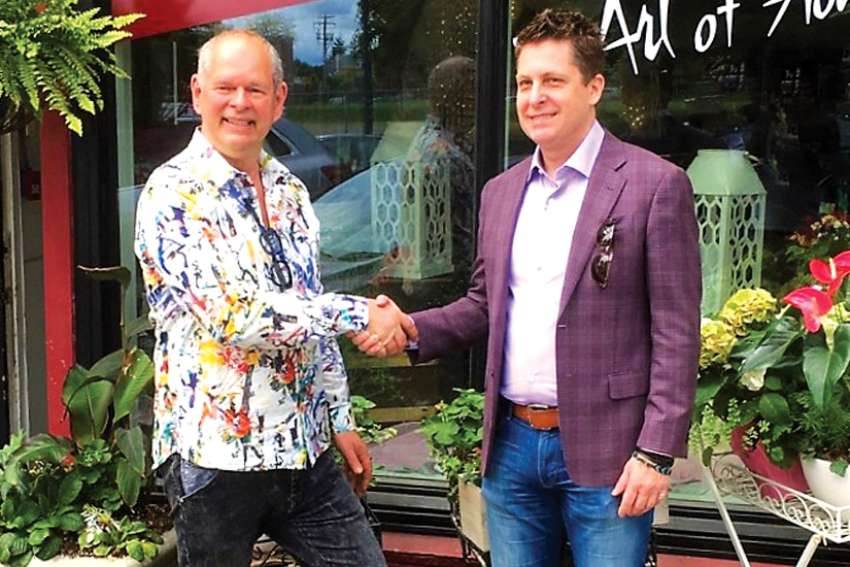VANCOUVER -- One year ago, the Archdiocese of Vancouver and the White Rock Pride Society were at loggerheads, waiting for a hearing before the B.C. Human Rights Tribunal as adversaries in a dispute over a church hall rental that pitted religious rights against the human rights code’s anti-discrimination clause.
Now the parties have opted to set aside the tribunal process in exchange for a more collaborative approach, one that acknowledges each other’s rights while making sure the hurt and confusion that prompted the society’s complaint against the archdiocese and Star of the Sea Parish doesn’t happen again.
The archdiocese, parish and Pride Society also hope the resolution can be an opportunity to build relationships between the Church and the society’s members, “many of whom are our sons, daughters, sisters and brothers,” said James Borkowski, Archbishop’s Delegate for Operations.
The dispute began in 2019 when White Rock Pride Society president Ernie Klassen contacted Star of the Sea to inquire about renting its community centre for a youth fundraising event. After providing information about the event, his rental application was denied and Klassen filed a complaint with the B.C. Human Rights Tribunal. The hearing was to begin this year.
But as each side began hearing more about the other’s views, they saw merit in moving discussions to a non-confrontational setting.
The archdiocese and the society ultimately agreed to abandon the adversarial process and resolve the dispute mutually, while the archdiocese has also developed parish rental guidelines for non-Catholic organizations to provide greater clarity on the use of parish facilities.
The guidelines, available online, confirm that a faith and morals clause will specify that use of the hall must be compatible with Church practices and a process will be established to resolve non-compliant applications while treating applicants “with respect and compassion.”
Parishes will be urged to “engage in constructive dialogue” and to consult new guidelines on interactions with the LGBTQ2+ community. Parishes will also receive education and support in implementing those guidelines from the archdiocese, said Borkowski.
Klassen appreciates the archdiocese and parish’s willingness to listen and find ways to work constructively to find opportunities for “support, inclusion, and dialogue” within the Church.
“In the true spirit of reconciliation, the two groups have reached an agreement far better than what a ruling from the Human Rights Tribunal could have achieved.”


